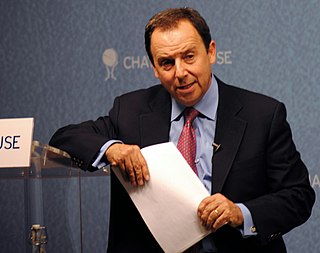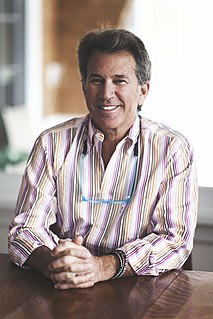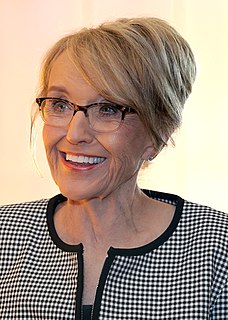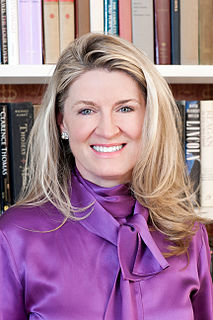Top 1200 Financial Services Quotes & Sayings - Page 7
Explore popular Financial Services quotes.
Last updated on November 15, 2024.
The trouble is that the risks that are being hedged very well by new financial securities are financial risks. And it appears to me that the real things you want to hedge are real risks, for example, risks in innovation. The fact is that you'd like companies to be able to take bigger chances. Presumably one obstacle to successful R&D, particularly when the costs are large, are the risks involved.
Even if a financial institution rejects an initial application by an individual using a synthetic identity, credit bureaus create a record from the transaction based on the fraudulent credentials. Consequently, the record can be used repeatedly by a fraudster to establish a fake identity used to commit financial and other types of fraud.
I have read a great deal of economic theory for over 50 years now, but have found only one economic "law" to which I can find NO exceptions: Where the State prevents a free market, by banning any form of goods or services, consumer demand will create a black market for those goods or services, at vastly higher prices. Can YOU think of a single exception to this law?
It is no exaggeration to say that since the 1980s, much of the global financial sector has become criminalised, creating an industry culture that tolerates or even encourages systematic fraud. The behaviour that caused the mortgage bubble and financial crisis of 2008 was a natural outcome and continuation of this pattern, rather than some kind of economic accident.
To restore confidence in our markets and our financial institutions so they can fuel continued growth and prosperity, we must address the underlying problem. The federal government must implement a program to remove these illiquid assets that are weighing down our financial institutions and threatening our economy.
When we conducted focus group interviews in the first municipality in Brazil before initiating the pilot project, a woman commented: Getting an appointment in the public sector municipal health services is like "winning the lottery." I would like to make it possible for many women and men in Latin America to win the lottery and receive the type of reproductive health services they so urgently need.
Like gold, U.S. dollars have value only to the extent that they are strictly limited in supply. But the U.S. government has a technology, called a printing press (or, today, its electronic equivalent), that allows it to produce as many U.S. dollars as it wishes at essentially no cost. By increasing the number of U.S. dollars in circulation, or even by credibly threatening to do so, the U.S. government can also reduce the value of a dollar in terms of goods and services, which is equivalent to raising the prices in dollars of those goods and services.
My sense is that the most under-appreciated-and perhaps most under-researched-linkages between forests and food security are the roles that forest-based ecosystem services play in underpinning sustainable agricultural production. Forests regulate hydrological services including the quantity, quality, and timing of water available for irrigation. Forest-based bats and bees pollinate crops. Forests mitigate impacts of climate change and extreme weather events at the landscape scale.
Free election of masters does not abolish the masters or the slaves. Free choice among a wide variety of goods and services does not signify freedom if these goods and services sustain social controls over a life of toil and fear – that is, if they sustain alienation. And the spontaneous reproduction of superimposed needs by the individual does not establish autonomy; it only testifies to the efficacy of the controls.
I felt that no boy should have to depend either for his leg or his life upon the ability of his parents to raise enough money to bring a first-class surgeon to his bedside. And I think it was out of this experience, not at the moment consciously, but through the years, I came to believe that health services ought not to have a price tag on them, and that people should be able to get whatever health services they require irrespective of their individual capacity to pay.
The powers of financial capitalism had a far-reaching aim, nothing less than to create a world system of financial control in private hands able to dominate the political system of each country and the economy of the world as a whole. This system was to be controlled in a feudalist fashion by the central banks of the world acting in concert, by secret agreements arrived at in frequent meetings and conferences.
You have to have a government to provide you with legal order, with stability, enforcement of property rights, enforcement of contracts, definition of rules and regulations - the rules of the game, so to speak - and to provide certain shared goods and services, public services. Several people have tried to estimate this and they come out with figures like government spending at 15% of GDP. In the modern world it has gone to 40% or above. So we are way beyond the optimal, and that is easier to say than what the optimum is.
The selection of MediLab came after an extensive evaluation process. The laboratory in Zambia presented many challenges such as rapidly expanding services and capacity, the need to coordinate laboratory services for 16 and soon to be 24 clinics in the Lusaka district alone, the need to automate recording and dissemination of results and the need for a robust, expandable, user friendly and technically supported LIMS system. The technology and international experience of MediSolution made MediLab an obvious choice.
The generally accepted theory is that financial markets tend towards equilibrium, and...discount the future correctly. I operate using a different theory, according to which financial markets cannot possibly discount the future correctly because the do not merely discount the future; they help to shape it.
We decided to significantly change the nature of the services we are providing to our clients by creating, really, a digital-first company, and digital first in two main directions: first, being the leader in providing digital services to our clients and second, making Accenture the most digitalized organization.
The President [Barack Obama], I think if you look at it from his shoes, you know, was facing a very difficult situation where he had to own Washington, tame New York, save a collapsing economy, with a collapsed financial system. He moved, I think, to a team that he felt was tried and true, in terms of dealing with financial crisis. That was his decision.
Happiness is yours in the here and now. The painful states of anxiety and loneliness are abolished permanently. Financial affairs are not financial problems. You are at ease with yourself. You are not at the mercy of unfulfilled cravings. Confusion is replaced with clarity. There is a relieving answer to every tormenting question. You possess a True Self. Something can be done about every unhappy condition. While living in the world you can be inwardly detached from its sorrows to live with personal peace and sanity.
The argument that it is difficult to find women is complete BS. Any bank will tell you that the No. 1 employee they lose the most money on is the mid-tier female they bring on when they are 22 who leaves in her mid to late 30s. These are women they spend a ton of money training, and a ton of money attracting and hiring. And then they lose them. And they lose them for many reasons. They're going to other sectors, other industries. So for us in the financial-services world to say we can't find women is ridiculous. They are out there. We've done it here at Anthemis.
It's not enough say, "Look, bankers were immensely greedy and that they committed lots of frauds." I mean, that's not, they were set free, that sort of particular proclivity in human nature was set free to do its best and its worst. Politicians and regulators are consumers of ideas. They never have any ideas of their own, it would take too much like hard work to develop ideas, you get them off menus and you pick the ones that suit you. Financial services were set free to go beyond their rightful place, a place by which they have been restrained in the past.
We need a federal government commission to study the way our financial services system is working - I believe it is working badly - and we also need more educated investors. There are good long term low-priced mutual funds - my favorite is a total stock market index fund - and bad short term highly priced mutual funds. If investors would get themselves educated, and invest in the former - taking their money out of the latter - we would see some automatic improvements in the system, and see them fairly quickly.
The Fed contributed to the financial crisis, keeping interest rates too low for too long. I give them credit for responding and stabilizing the economy and the financial sector during the crisis. But then they tried to do too much with quantitative easing that went on forever, just dramatically exploding their balance sheets.
'Nobody goes to jail.' This is the mantra of the financial-crisis era, one that saw virtually every major bank and financial company on Wall Street embroiled in obscene criminal scandals that impoverished millions and collectively destroyed hundreds of billions, in fact, trillions of dollars of the world's wealth - and nobody went to jail.
I think that today, more so than ever, corporate responsibility is the best strategic as well as financial path that most businesses can follow. For most businesses there are both compelling reasons to be responsible and compelling statistics that validate that responsible businesses do better according to traditional financial metrics. Of course, how you define "responsible" is somewhat of a conundrum.
Over and over again, financial experts and wonkish talking heads endeavor to explain these mysterious, 'toxic' financial instruments to us lay folk. Over and over, they ignobly fail, because we all know that no one understands credit default obligations and derivatives, except perhaps Mr. Buffett and the computers who created them.
They [leaders in Western Europe] do not misuse financial instruments, financial injections, but, first of all, seek structural change. This is urgent for our economy as well, maybe even more urgent bearing in mind the problem that we cannot yet deal with, namely the prevalence of the oil and gas sector in the Russian Federation and, as a result, dependence on revenue from oil and gas.
No one anticipates divorce when they're exchanging vows, and it can be devastating emotionally and financially. To ease the financial side of the blow, you need to maintain your financial identity in your relationship. That means having your own credit history - you need your own credit card - and your own savings and retirement accounts.
Business requires understanding financial matters, but management is different from running the financial aspects of the business - it requires understanding complex systems, how they operate, the nature of organisations, what happens when people interact in groups and how to motivate and guide people.
Acting on the stage is a luxury for me. I lose money. I make movies for financial reasons and this allows me the luxury of acting on Broadway. Hollywood, unfortunately, exploits actors for their own reasons, which are usually financial. So we might as well exploit Hollywood as much as it exploits us.
Financial institutions have been merging into a smaller number of very large banks. Almost all banks are interrelated. So the financial ecology is swelling into gigantic, incestuous, bureaucratic banks-when one fails, they all fall. We have moved from a diversified ecology of small banks, with varied lending policies, to a more homogeneous framework of firms that all resemble one another. True, we now have fewer failures, but when they occur... I shiver at the thought.
And under the existing circumstances, I understand there are situations where people indeed need care and need services, but I believe in America that the majority of those people are getting those services under situations and circumstances that are afforded to them by their health care providers and their state government.
There's a statement from several members of the Senate, both Democrats and Republicans, including the Democratic leader, Charles Schumer; John McCain, the chair of the Senate Armed Services Committee; and Lindsey Graham, also a member of the Senate Armed Services Committee. They write that recent reports of Russian interference in our elections should alarm every American. They say Democrats and Republicans must work together to investigate this.
The single greatest line I ever wrote as an analyst was after Lomas said they were hedged: 'The Lomas Financial Corporation is a perfectly hedged financial institution: it loses money in every conceivable interest rate environment.' I enjoyed writing that sentence more than any sentence I ever wrote.
My parents were working class folks. My dad was a bartender for most of his life, my mom was a maid and a cashier and a stock clerk at WalMart. We were not people of financial means in terms of significant financial means. I always told them, 'I didn't always have what I wanted. I always had what I needed.' My parents always provided that.
If the American government can't stand behind the dollar, the world's benchmark currency, then the global financial system will very likely enter a new era in which there is much less trade and much less economic growth. It would be, by most accounts, the largest self-imposed financial disaster in history.
We have full disclosure in transparency of our audited, our financial audits. It's on our Web site. It is, I think 16 or 20- something pages, which most public companies or private companies and most ministries don't disclose. So we have always operated with financial integrity and full transparency.
The role of business is to provide products and services that make people's live better - while using fewer resources - and to act lawfully and with integrity. Businesses that do this through voluntary exchanges not only benefit through increased profits, they bring better and more competitively priced goods and services to market. This creates a win-win situation customers and companies alike.
From the 1990s onward, the financial sector created a vast array of instruments designed to separate investors from their money, financial derivatives of an ever-increasing level of complexity. At some point, this complexity reached a point where even the creators of the derivatives themselves didn't understand them.
When large companies take on risk, then they impose risks on the rest of the system. And these are systemic risks and these systemic risks we never used to think were really that important, but as soon as we recognize how the financial sector - the risks the financial sector takes on can impact the entire global economy, we realize that those risks needed to be controlled for the social good.
We are all used to paying a sales tax when we buy things - almost 9 percent here in New York City. The application of this concept to the financial sector could solve our need for revenue, bring some sanity back into the financial sector, and give us a way to raise the revenue we need to run the government in a fiscally responsible way.

























































